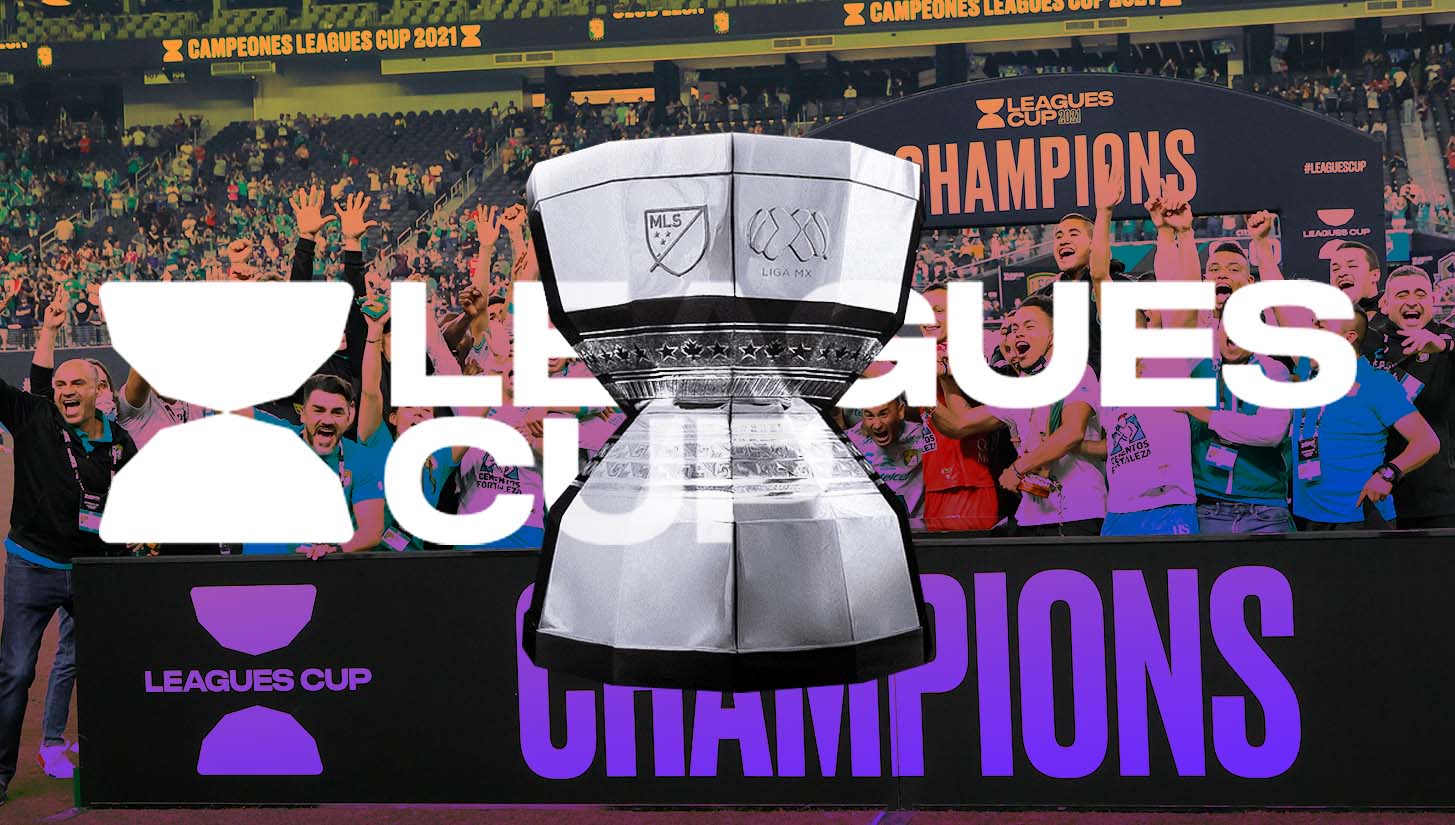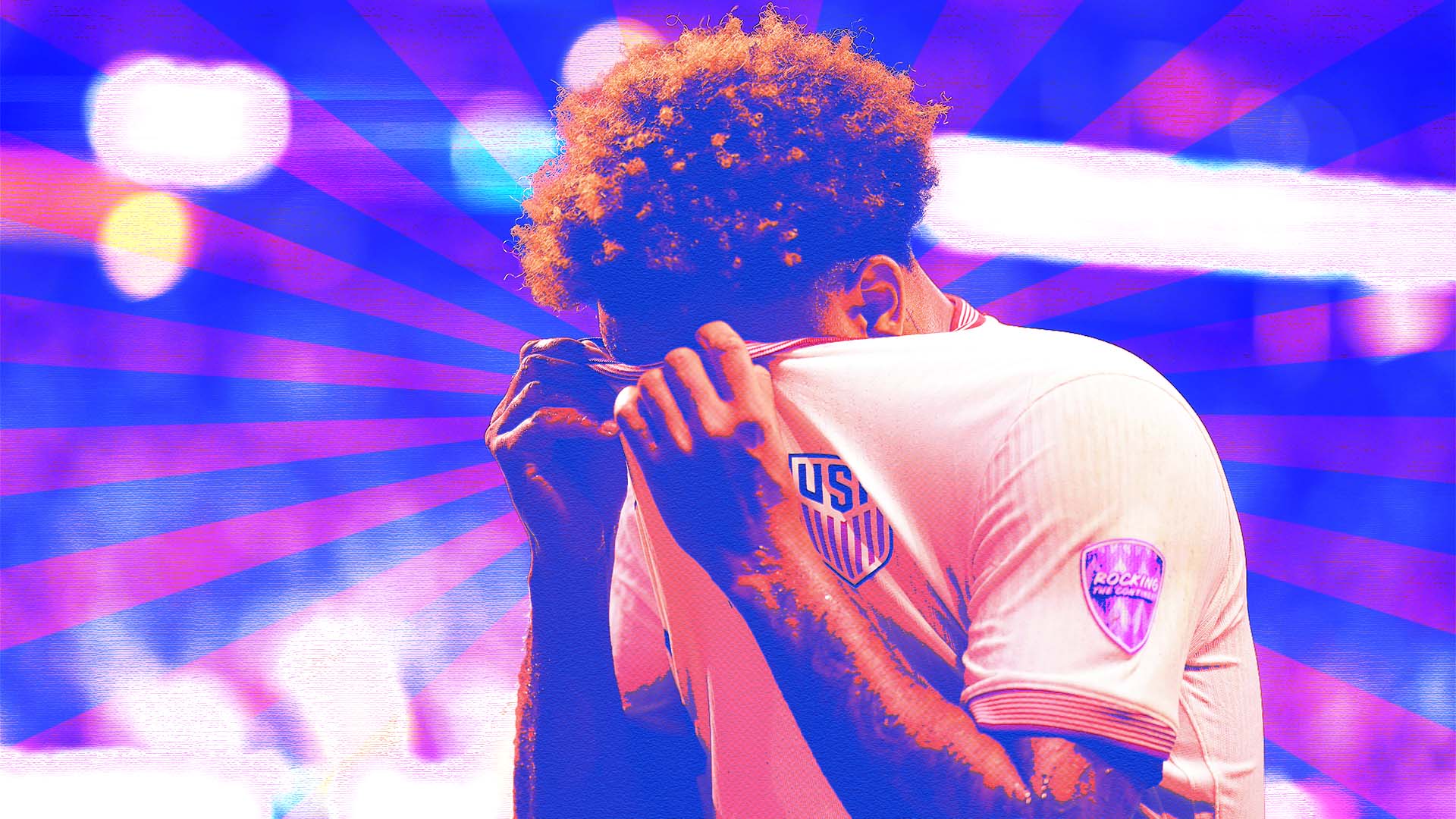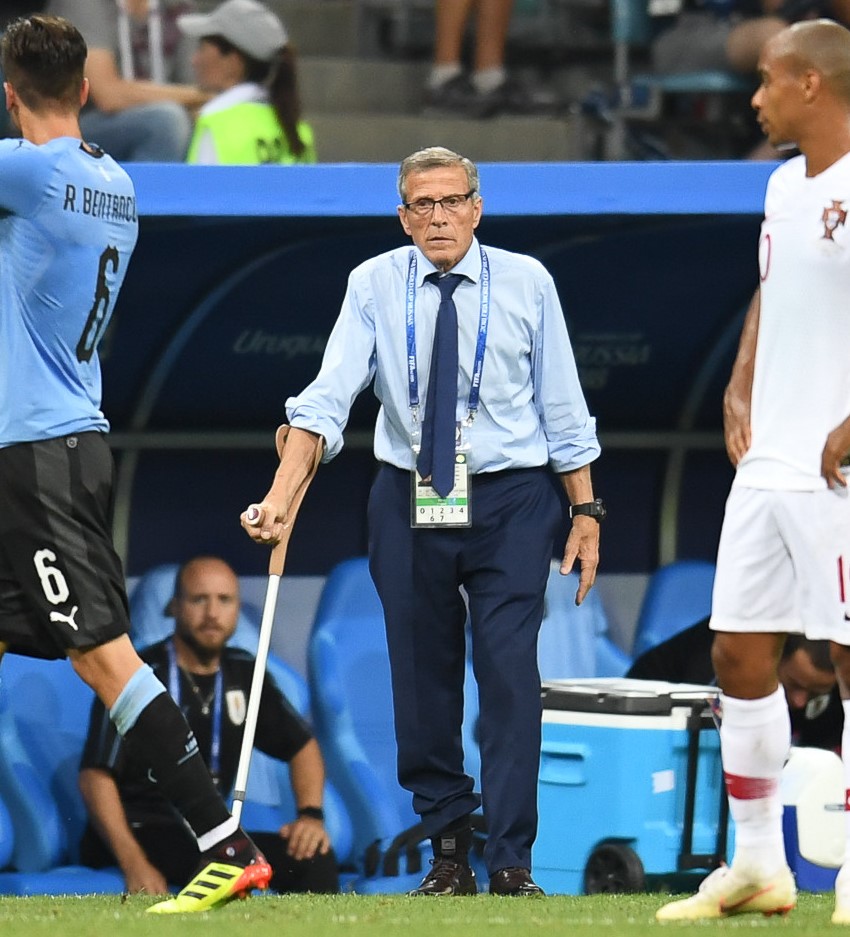After speaking with us last year in his first season covering MLS as a part of the Apple TV Season Pass team, Alejandro Figueredo is back to discuss all things American soccer — from MLS to the Leagues Cup and beyond.
Alejandro Figueredo has been a bright spot in the Spanish commentary on Apple TV’s MLS Season Pass. The Uruguayan’s unique style and his work on social media with his series “MLS Secrets,” in which he shares unique stories from all of the team’s stadiums that he visits, has positioned him as a voice to listen to when watching MLS games.
View this post on Instagram
In 2024, Figueredo not only witnessed the now cemented arrival of Lionel Messi in his second season with Inter Miami, but also a major taste from his home nation with the arrival of Luis Suarez to the club. He’s seen the best and the worst the league has to offer this season, and he sits down with us once more to give his unique perspective on MLS, in addition to his takes on soccer culture in the United States and the U.S. men’s national team as an “outsider.”
MLS and Leagues Cup
Urban Pitch: What’s been the main story of 2024? What’s been your perception of MLS in your second year covering the league?
Alejandro Figueredo: Well work-wise, it’s been the same dynamic as last season. There haven’t been specific changes, but on the field I think the major stories of 2024 come down to the debut of Cavan Sullivan becoming the youngest player in MLS history, the soon official arrival of Olivier Giroud to LAFC, and everything that’s going on at San Diego FC with how they are building their squad and the major signing of Chucky Lozano.
MLS has grown and continues its firm steps as being a league of consideration for players all over the world. It’s a league with a good level of play, although at times it’s amazing how some teams go from worst to first.
I’d also add that a lot of 2024 has centered around Inter Miami and the arrival of Luis Suarez, with Lionel Messi trying to break a number of records as well. I think the revelation of the season for Tata Martino’s side is Yannick Bright.
MLS continues to deal with a lot of misconceptions from abroad, a lot based on ignorance of how the league works. I noticed this a lot from colleagues who failed to grasp the new rules that MLS applied this season to speed up play.
MLS by far has become a destination for players of all walks of life from all over the world, but in U.S. Soccer circles there is concern that the league is becoming too foreign, and that the American player is having difficulty playing in their own league. What do you make of MLS trying to keep a balance?
Well, we have the strange case of Sullivan, who at 14, still has a long road ahead. He has a brother on the squad, an academy player, and his parents are close to the staff. So there is a whole process in his case.
Then you have Caleb Wiley, a young American sold to Chelsea via Atlanta United. There are a lot of young Americans coming up, they are just being sold at a much younger age.
Then MLS has its roster rules, which are composed of basically six designated players — three regular DPs and three U-22 DPs. So a lot depends on the player, rules, and roster balance. I think this league has a lot to offer for the American players.
At times, a lot of the mistakes that happen in MLS are promoted on social media, but it’s due to roster imbalance in my opinion, not just in age but also background. MLS is unique where players of high caliber have to adjust to being around players who did not grow up as soccer being their only out professionally.
There are players who come from a university background where soccer was a vehicle to get their degree that has nothing to do with soccer. MLS encounters these two different worlds, and as is the case when a river and an ocean meet, the water color changes a lot.
In a way, that culture clash continues to hinder the league as sometimes the players are too far off, no?
This is a league where there are players, not just DPs, but roster players who come to the league having played high caliber European matches and experiences. They have a competitive gene that is unmeasured. Then they are in squads where some players may not have that competitive spark.
Either you have that gene or you don’t. And that’s how I think it circles back to the USMNT. At times it’s not about physical, technical, or even coaching ability. It’s cultural. You can change the coach, change the style of play, but if you don’t change culturally it’s hard to take that next step.
Do you think that cultural aspect needs to change in order for the U.S. to truly compete on the international stage? Between the ideas that Jürgen Klopp is a realistic candidate for the USMNT manager job, or that if we hire Zinedine Zidane we will play like Real Madrid, it seems like many fans struggle with our place in the game.
The United States has a strong sporting culture, but what it does not have is a soccer culture that really makes a leap to high competition. Soccer is not like the other sports in the U.S. It has a lot of qualities that make it different.
Here, sports are a spectacle. The American is interested at times to a point of obsession with high scores, box scores, big data. Big data is important — it can help in the utility that one player can have on a team, but it can’t help in the collective that a team needs to win.
It’s as old as time. In soccer, the team that has the most shots on goal or possession does not necessarily always win. The way that some people in the U.S. obsess over the stats at times interferes in the collective of the game.
You can’t treat all the sports in the same stats-driven way. Soccer is a different kind of game.
View this post on Instagram
Back to MLS, one thing that strikes me is the amount of hat-tricks this season. It seems now that there is one side of MLS when teams attack, and a complete other when they have to defend.
Well in MLS, more than anywhere really, the big bucks are spent in the attack. It’s the teams that find a balance in a way to have good defenders that are the teams that make a serious run.
That’s why we say Inter Miami isn’t a shoe-in to win MLS Cup this season, because of their defensive liabilities. And one can ask, how can a team that has Messi, Suarez, Alba, and Redondo not be in the running to win the league? Well it’s because they’ve had severe defensive lapses basically all season.
Yet Inter Miami may have been one of the few teams in MLS that spent a big transfer on a defender in Tomás Avilés.
Yes, but Tomás Avilés is 19 years old. You can’t put the balance of your defense on a kid that is 19. Tomás Avilés has grown in his role at Inter Miami, but he is still a kid.

At the moment the league has paused for Leagues Cup, but what are your thoughts on favorites to win the MLS Cup?
I’d say Cincinnati is in a group with Inter Miami, LAFC, and LA Galaxy, but I would not take out of the conversation NYCFC and Orlando City. They are teams that have had issues this season, but once in the playoffs, they could string a good run together.
The MLS Playoffs format is a bit tricky, that’s why a Supporter’s Shield winner rarely wins the Cup. I think there are three teams in the West, which are the two LA clubs and Real Salt Lake, and in the East I am still leaving the door open for Cincinnati, Inter Miami, and let’s not rule out either of the New York teams or Columbus.
Leagues Cup, in its second year, will have to make due without Lionel Messi, who massively helped position the competition last season. How can the Leagues Cup truly break through and become the competitive tournament that MLS wants it to be?
I think there are four major elements as to why Leagues Cup will be an important tournament, not in the future, but right now.
First, it’s a gateway to the FIFA Club World Cup because of the teams that qualify to the CONCACAF Champions Cup. Then, there is an economic benefit for those teams that go further in the competition, as there is a lot of money at stake.
Third, the rivalry between the United States and Mexico is only getting bigger, and fourth, the teams that are knocked out early will have three weeks without competition. That long of a break presents a tough challenge for coaches who are entering the principal part of a playoff push.
Copa America and the USMNT

Urban Pitch: What’s your perspective on what happened to the USMNT at the Copa America?
Alejandro Figueredo: Let’s not sugar coat it — it was an immense failure.
The issue really goes back to Qatar and the poor strategic decision to keep Gregg Berhalter, especially with all the baggage of post-Qatar. In the end, the program lost two years and will now need to rebuild with their primary objective, the 2026 World Cup, now just two years away.
Everything post-Qatar suggested a change was needed, and the federation made a big mistake in continuing with a project that peaked.
You’re Uruguayan, what did you make of Marcelo Bielsa’s Uruguay side at Copa America?
I think the romance with Marcelo Bielsa still depends on a lot of things. World Cup qualifying isn’t a shoe-in yet. If we lose to Venezuela in Montevideo and have a string of tough results, then people will get upset. So we need to ease up on the idea that we are qualified to the 2026 World Cup already.
I think Bielsa proved at Copa America he is not married to just his style of play, and that he’ll typically have a plan B if he needs to adapt.
I believe in the project of Marcelo Bielsa, and after the failure of Diego Alonso at the World Cup in Qatar, I firmly believed the national team needed a figure as important as Óscar Tabárez.

Not with Tabárez’s playing style per se, but his intellect at building a national team program. We can’t forget many of these players are there because of the work of Tabárez and his Proceso.
Bielsa got a reality check at the Copa America, and saw that we have excellent players, but we have a team that’s divided between some of the world class starters and substitutes that are simply not at that level. That doesn’t mean those players are bad, by no means, but there are considerable drop offs.
We have a great starting lineup, but maybe not the best options to replace them if a Nandez, Valverde, or Bentancur goes down. That’s kind of the story for Uruguay right now — lots of potential but we are not world class deep in regard to roster. We have a very good team.
Collectively, the program is on the right track, but just beating Brazil and Argentina in World Cup qualifying is not enough in Uruguay. We’ve done that many times. Just like with Tabárez being fourth in 2010, winning just one Copa America in 15 years under his leadership, and finishing fifth in a World Cup (2018) was not enough to some.
Uruguay is on the right track, but we still need a bit more work for what lies ahead.
Interview lightly edited for clarity and brevity.








